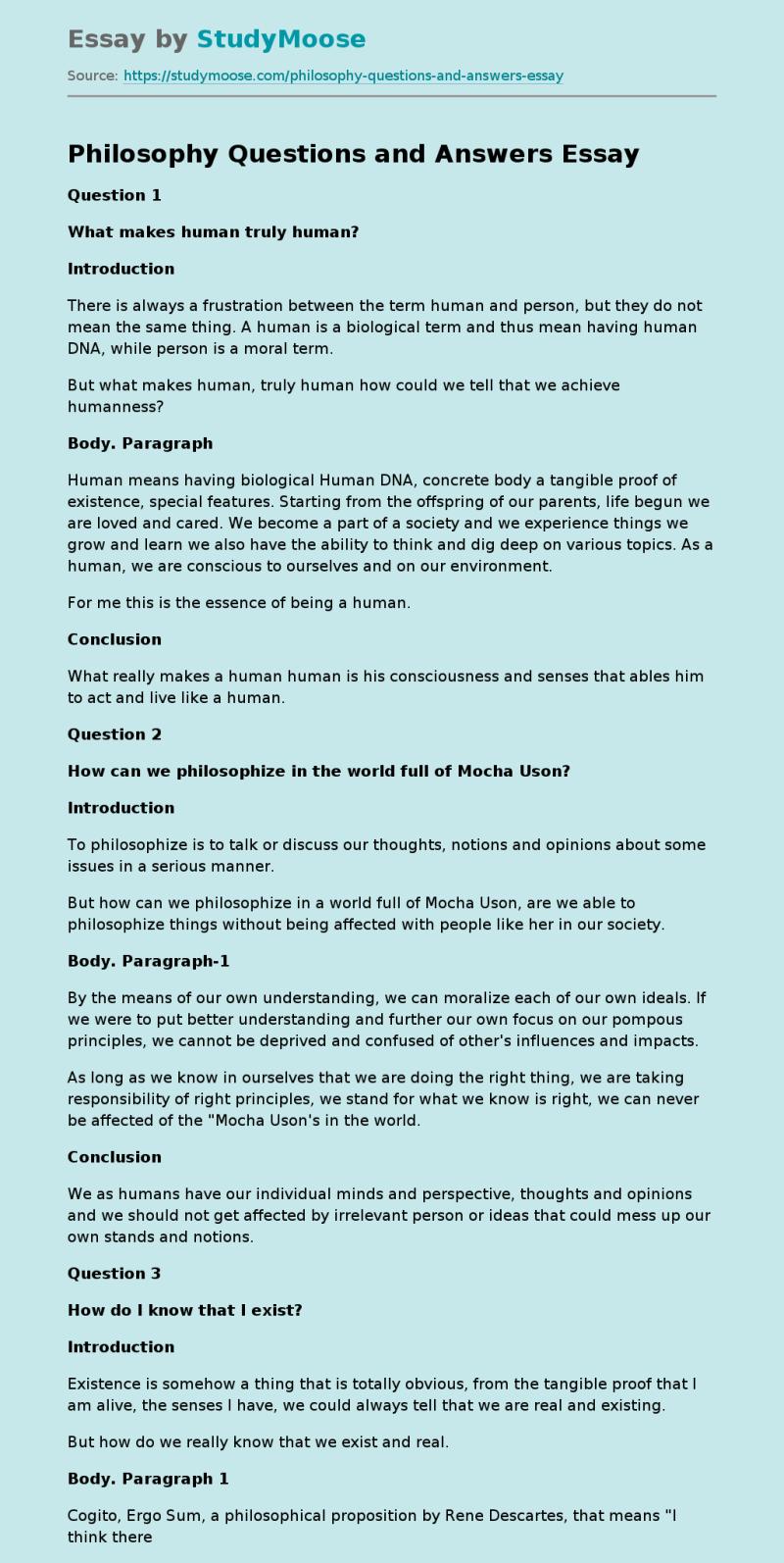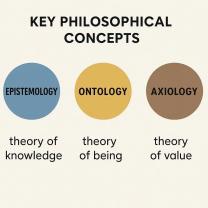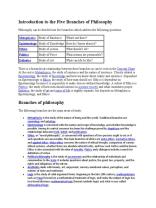What are some philosophical questions we have?
Philosophy has a rich tradition of exploring profound and thought-provoking questions that span a wide range of topics. Here are some contemporary philosophical questions that continue to captivate thinkers and spark intellectual discourse:
Consciousness and Mind-Body Problem:
- What is consciousness, and how does it relate to the physical brain? How can we explain the mind-body relationship?
Ethics of Artificial Intelligence:
- What ethical considerations arise with the development and use of artificial intelligence? How should AI be programmed to make ethical decisions?
Personal Identity:
- What constitutes personal identity? How do experiences, memories, and physical continuity contribute to our sense of self?
Free Will and Determinism:
- Do humans have genuine free will, or are our actions determined by factors beyond our control?
Philosophy of Technology:
- How does technology impact society, ethics, and human well-being? What are the philosophical implications of advancements like genetic engineering, virtual reality, and surveillance technologies?
Epistemology in the Age of Information:
- How do we define knowledge and truth in an era of information overload and rapid technological advancements?
Environmental Ethics:
- What ethical obligations do we have toward the environment, and how should we balance human needs with ecological preservation?
Philosophy of Language:
- How does language shape our thoughts and perceptions? What is the nature of linguistic meaning?
Philosophy of Science:
- What is the nature of scientific explanation? How should we understand scientific theories, realism, and the relationship between science and philosophy?
Social and Political Philosophy:
- What is the nature of justice? How should we address issues of inequality, rights, and the role of government in contemporary society?
Metaethics:
- What is the nature of morality, and are moral claims objective or subjective? How do we ground ethical principles?
Existential Questions:
- What is the meaning of life? How should individuals find purpose and meaning in an often chaotic and indifferent universe?
Philosophy of Religion:
- What evidence or arguments exist for the existence of God? How do religious beliefs intersect with ethical and metaphysical questions?
Identity Politics:
- How should we understand and navigate the complexities of identity, including issues related to race, gender, and sexual orientation?
Philosophy of Mind and Artificial Intelligence:
- Can machines possess consciousness? What are the implications of developing sophisticated artificial intelligence with human-like cognitive abilities?
Aesthetics and the Nature of Beauty:
- What is the nature of beauty, and are aesthetic judgments purely subjective or objective?
Philosophy of Education:
- What is the purpose of education, and how should it be structured to promote individual and societal well-being?
These questions represent just a small sample of the vast and ongoing inquiries within contemporary philosophy. Philosophers continue to explore and refine these topics, contributing to the ever-evolving landscape of philosophical thought.
What are the ethical implications of artificial intelligence?
The ethical implications of artificial intelligence (AI) are vast and complex, encompassing a wide range of issues with the potential to significantly impact individuals, societies, and the world as a whole. Here are some key areas of concern:
1. Bias and discrimination: AI algorithms are trained on data sets, which can reflect societal biases in areas like race, gender, and socioeconomic status. This can lead to discriminatory outcomes, for example, in hiring decisions, loan approvals, or criminal justice.
2. Transparency and accountability: Often, the inner workings of AI systems are opaque, making it difficult to understand how decisions are made and who is responsible for potential harms caused. This lack of transparency can erode trust and hinder accountability.
3. Privacy and security: AI systems rely on collecting and analyzing vast amounts of personal data, raising concerns about privacy violations and data security breaches. Additionally, AI may be used for mass surveillance, potentially infringing on individual freedoms.
4. Job displacement and automation: AI is likely to automate many jobs, potentially leading to widespread unemployment and economic inequality. It is crucial to consider how to manage the transition and ensure that everyone benefits from the potential of AI.
5. Weaponization and autonomous warfare: The development of autonomous weapons systems raises serious ethical concerns about the potential for human-less warfare and the loss of human control over lethal force.
6. Superintelligence and existential risk: Some experts raise concerns about the possibility of AI surpassing human intelligence and potentially posing an existential threat to humanity. While this may seem futuristic, it is important to have open discussions about responsible AI development to mitigate such risks.
7. Manipulation and misinformation: AI can be used to create deepfakes and other forms of manipulative content, potentially undermining trust in information and fueling social divisions.
8. Environmental impact: The development and training of AI can be energy-intensive, raising concerns about its environmental footprint. Additionally, AI may be used in ways that harm the environment, such as for autonomous deforestation or resource extraction.
9. Human values and morality: As AI becomes more sophisticated, questions arise about how to ensure that it aligns with human values and ethical principles. This includes considering the ethical implications of granting AI legal rights or personhood.
10. Global governance and regulation: The rapid development of AI poses challenges for governance and regulation, as existing frameworks may not be equipped to address the ethical concerns raised by this technology.
Addressing these ethical issues requires a multi-pronged approach involving governments, researchers, developers, businesses, and civil society. It is crucial to develop ethical guidelines for AI development and deployment, promote transparency and accountability, and ensure that AI benefits all of humanity.
This is just a brief overview of the ethical implications of AI. The field is constantly evolving, and new issues are likely to emerge. It is important to stay informed and engaged in this critical conversation to ensure that AI is developed and used in a responsible and ethical manner.













